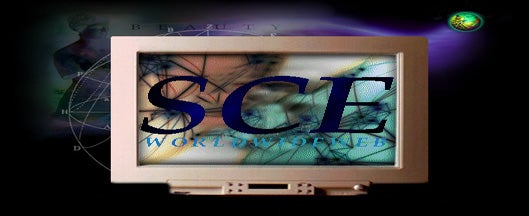

Intellectual Property
1991 saw the genesis of this highly successful SCE project, with an inaugural conference at Case Western Reserve University. "Intellectual Property and the Construction of Authorship" brought together literary theorists and legal scholars "to explore all aspects of the social and cultural construction of authorship in relation to the evolution of proprietary rights in ideas."
Since then, this project has seen constant activity and innovation. There have been sessions at each of the subsequent MLA conventions, a second conference, "Cultural Agency/Cultural Authority: Politics and Poetics of Intellectual Property in the Post-Colonial Era" (held at the Rockefeller Center in Bellagio, Italy), and two volumes of papers, one from each conference, along with a new series from Duke University Press, entitled "Cultures of Authorship: From Gutenberg to Internet." Conference programs and information about the publicaitons are located at these links:
Intellectual Property and the Construction of Authorship Conference Cultural Agency/Cultural Authority Conference Publications and Accomplishments The project has also played significant roles in the debate over the development of the National Information Infrastructure (NII), and in the founding of the Coalition for the Digital Future (CDF). A fuller report on the IP project and on these endeavors are available at the following links:
IP/CA Project Report NII/CDF Report The Bellagio Declaration Perhaps most significantly, some of the central perceptions of the SCE project (like the notion that less is sometimes more in the field of intellectual property) are seeming to be proving influential in current debates about the direction of intellectual property legislation. Among the highly controversial issues facing the Congress these days are copyright term extension and the adaptation of copyright laws to the digital networked information environment. On these issues and others, some of the most active lobbyists for the interests of not-for-profit institutions and the larger community of "users" are veterans of the SCE intellectual project. For more information on the domestic politics of intellectual property, and about opportunities for grassroots involvement in the debate, you can consult the websites of the Digital Future Coalition and the Intellectual Property Committee of the Conference on College Composition and Communication , along with the "Opposing Copyright Extension" site put up by Dennis Karjala. Many of the same issues are also being debated at the international level as well. Pam Samuelson's lively account of the recent Diplomatic Conference of the World Intellectual Property Organization appears as "Big Media Beaten Back," in the March 1997 issue of Wired magazine.
Other new publications by individuals involved in the project include a major article on rights in information by Pamela Samuelson and Jerome Reichman, "Intellectual Property Rights in Data?," Vanderbilt Law Journal 50.1 (1997), and an article by Peter Jaszi and Martha Woodmansee drawing on the experience of the 1993 Bellagio Conference on Cultural Agency/Cultural Authority: "The Ethical Reaches of Authorship," in the Fall 1996 issue of the South Atlantic Quarterly. (The first footnote of the latter article, incidentally, constitutes a mini-bibliography of the larger project.) Forthcoming publications related to the project include Martha Woodmansee's "The Cultural Work of Copyright: Legislating Authorship in Britain, 1837-1842," which will appear in a book called Law in the Domains of Culture edited by Austin Sarat, from University of Michigan Press in 1997.
The project is also beginning to demonstrate real "reach" in the legal academic literature. Law being a conservative discipline, it has taken some time for the central premises of the project to be assimilated into public policy discourse, but this process is now very much underway. Two recent examples are Niva Elkin-Koren's excellent article, "Copyright Law and Social Dialogue on the Information Superhighway," Cardozo Arts and Entertainment Law Journal 13.2 (1995), and an entertaining piece by David Nimmer entitled "Brains and Other Paraphernalia of the Digital Age" [Harvard Journal of Law and Technology 10.1 (1996)]. Nimmer is the author of the principal legal treatise in the copyright field. Also very much worth reading in this connection is Paul Heald's recent "Reviving the Rhetoric of the Public Interest: Choir Directors, Copy Machines, and New Arrangements of Public Domain Music," Duke Law Journal 46.2 (1996). And there is an interesting "push-back" against claims for the explanatory power of the "author-construct" in a book review by Mark Lemley entitled "Romantic Authorship and the Rhetoric of Property," Texas Law Review 75.4 (1997).
The MLA has continued to serve as a venue for the IPCA project. The SCE sponsored two panels under the rubric of this project at the 1996 MLA in Washington; it will sponsor additional programs at the 1997 Toronto MLA.
On the pedagogic front, Martha Woodmansee and Andrea Lunsford co-taught a graduate seminar on the Construction of Authorship (to which Peter Jaszi also contributed), for students at CWRU and Ohio State. The seminar culminated in a joint student panel on writing in the electronic age at the CCCCs in March 1997.
SCE Intellectual Property and Copyright Law Global Links

